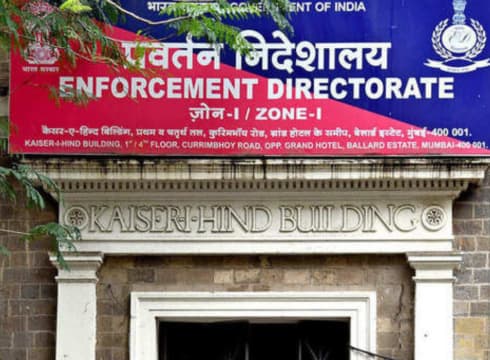`The action has come after the enforcement agency initiated a probe based on an FIR lodged at the Cyber Crime Police Station in Bengaluru under various sections of the Indian Penal Code and the IT Act
The alleged proceeds of crime were parked under merchant IDs of various Indian fintech startups, including Razorpay, Cashfree, Paytm, PayU and Easebuzz
In February, the Centre informed the Parliament that it had frozen an amount of INR 859.15 Cr under the PMLA in illegal Chinese lending apps cases
Inc42 Daily Brief
Stay Ahead With Daily News & Analysis on India’s Tech & Startup Economy
Cracking its whip on illegal Chinese loan apps yet again, the Enforcement Directorate (ED) on Wednesday (March 29) provisionally attached movable assets to the tune of INR 106 Cr belonging to several lending app operators under the provisions of the Prevention of Money Laundering Act, 2002.
However, this time, too, Indian fintech startups may come in the line of fire. This is because the amount seized was parked with various Indian fintech startups and banks. Some of these fintech startups include names like Razorpay, Cashfree, Paytm, PayU, and Easebuzz.
Further probe into the case is currently underway.
The action has come after the enforcement agency initiated a probe based on an FIR lodged at the Cyber Crime Police Station in Bengaluru under various sections of the Indian Penal Code and the IT Act.
The case involved multiple Chinese entities and nationals for alleged extortion and harassment of people who had availed loans through loan apps controlled by these foreign citizens.
Describing the modus operandi, the ED said that many of these entities floated companies by appointing dummy directors on behalf of Chinese nationals. These entities allegedly obtained the KYC details of many Indian nationals and appointed the locals as directors of these firms without their consent.
“These entities are involved in illegal/criminal activities by submitting fake addresses in KYC documents and taking assistance from various professionals and other persons,” the ED added.
Subsequently, these entities would then provide instant loans through their apps to availing customers and would charge exorbitant interest rates and high processing fees. These firms would then employ predatory tactics to recover the loan amounts, which included threats and even contacting family members and friends of borrowers to ask for money.
These illegal loan apps have recently grabbed a lot of attention for all the wrong reasons. Many of these platforms operate illegally and are infamous for harassing customers.
Not only this, there have been instances in which many resorted to extreme steps of dying by suicide, triggered by the harassment tactics pursued by these loan sharks.
The Crackdown Continues
The recent action has come a week after the ED filed a chargesheet against multiple individuals and entities, including fintech unicorn Razorpay, in connection with a money laundering probe involving illegal Chinese loan apps.
Besides, the Centre has also instituted a slew of norms to tackle the growing menace of illegal loan apps.
In January, the government banned as many as 232 online betting apps and loan apps, including many Indian startups. After much hue and cry, several homegrown players breathed a sigh of relief after the government unblocked their websites and apps.
In February, the Centre also informed the Parliament that it identified around INR 2,116 Cr as proceeds of crime and had frozen an amount of INR 859.15 Cr under PMLA and assets worth INR 289.28 Cr under foreign exchange norms.
In 2020, the Centre undertook the first of the bans on Chinese apps, under which 59 apps including the short video platform TikTok, file sharing app ShareIt, and UC Browser were banned.
{{#name}}{{name}}{{/name}}{{^name}}-{{/name}}
{{#description}}{{description}}...{{/description}}{{^description}}-{{/description}}
Note: We at Inc42 take our ethics very seriously. More information about it can be found here.


